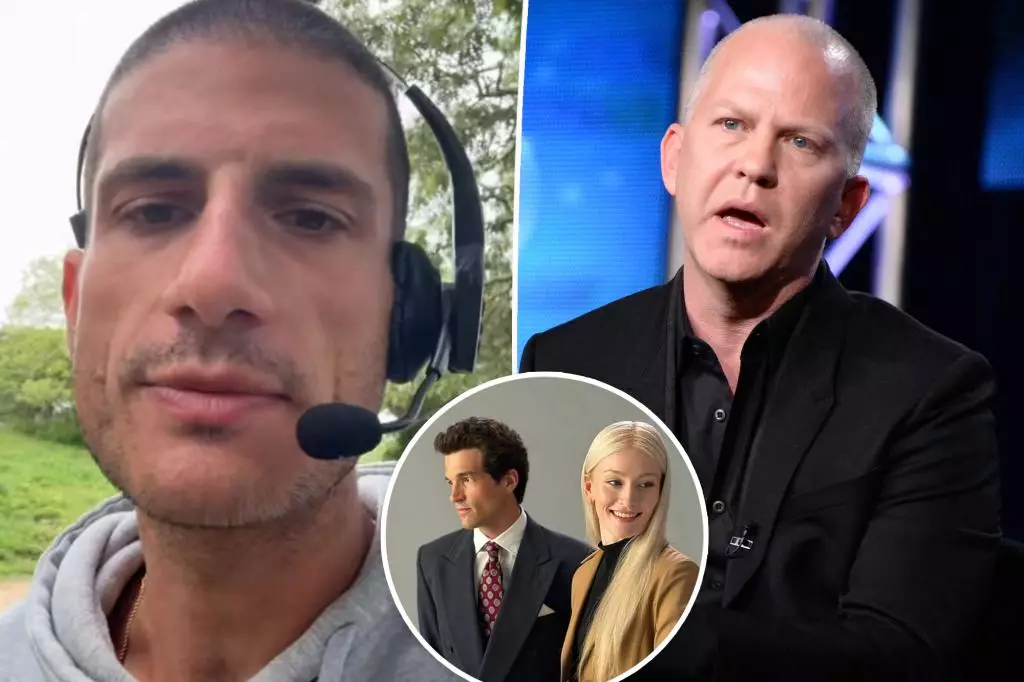In a society obsessed with storytelling, the boundaries between authentic remembrance and commercialization often become blurred. The case of Jack Schlossberg, the grandson of John F. Kennedy, and his critique of Ryan Murphy’s portrayal of JFK Jr. exemplifies a fundamental tension: how do we honor personal and familial memories without turning them into commodities for profit? Schlossberg’s pointed response underscores the importance of respecting the authentic narratives that descendants hold—stories rooted in personal experience, nostalgia, and familial bonds—and contrasting them with portrayals based on entertainment-driven visions. His assertion that Murphy’s series profits from his family’s legacy without contribution or consultation questions the very ethics of storytelling that capitalize on sentimental histories.
The significance of genuine remembrance cannot be overstated; it functions as an act of preserving history with integrity. When media productions gloss over or manipulate the realities of influential figures like JFK Jr., they risk turning complex lives into sensationalized caricatures. Schlossberg’s defense of his family’s history reveals a deep investment in ensuring that their stories remain respectful and truthful. Meanwhile, Murphy’s casual dismissiveness about Schlossberg’s memories raises deeper issues about the nature of celebrity, historical accuracy, and moral responsibility in entertainment. Are these stories mere commodities to be reshaped for ratings, or do they deserve a respectful, nuanced approach that honors their true complexity?
The Commercialization of Historical Narratives: Exploitation or Artistic Expression?
The controversy surrounding “American Love Story” highlights the broader debate on the commercialization of history. Producers like Murphy often argue that creative reinterpretation serves as a form of artistic expression, bringing unseen facets of a beloved era or figure to the public eye. However, this perspective risks minimizing the human element—reducing profound historical figures to caricatures and spectacle for mass consumption. When rich legacies are exploited solely for profit, questions about ethical stewardship arise.
Schlossberg’s accusation that Murphy profits from his family’s legacy without engaging in meaningful philanthropy or respect touches on a crucial ethical point. Is it enough to tell captivating stories, or must creators also contribute to the causes and principles that the figures represented? This critique suggests that commercial interests often overshadow the moral obligation to preserve truth and honor the lived experiences of those involved. The glamorization of tragic events, such as JFK Jr.’s death, further complicates matters by risking trivializing painful memories that are still emotionally resonant for many families and admirers.
The casting choices and aesthetic decisions of the series—such as Naomi Watts portraying Jacqueline Kennedy—highlight a tendency to prioritize visual appeal and sensationalism over authenticity. Such choices underscore a broader cultural belief that history’s complex truths are secondary to entertainment value. This shift in focus raises the question: To what extent are we willing to sacrifice historical integrity for the sake of a compelling storyline?
Personal Stories and the Preservation of Legacy
Jack Schlossberg’s heartfelt recounting of memories with JFK Jr. offers a reminder of the importance of individual perspective in shaping the understanding of history. These personal anecdotes—not accessible through public records or scripted portrayals—are vital in safeguarding the emotional truth behind the historical figures. His stories about his childhood, like being called “Jackolatern” or participating in family weddings, emphasize a reality that no script can authentically replicate.
This personal dimension underscores a broader concern: when mediators like filmmakers and TV producers take ownership of history, they risk erasing the intimate, authentic narratives that define a family’s legacy. Schlossberg’s critique reminds us that these stories are not just entertainment fodder but foundational elements of identity, history, and memory. Disregarding this significance in favor of sensationalized storytelling diminishes the very essence of what it means to honor the past.
Furthermore, his insistence that his family was not consulted in the production process raises pressing questions about representation and consent. Are such portrayals respectful, or do they exploit the family’s narrative for financial gain? This debate is increasingly relevant in an era where entertainment corporations wield significant influence over collective memory, often without transparency or accountability.
—
Ultimately, the episode exposes a fundamental truth: the preservation of history demands responsibility and respect. When artistic endeavors cross boundaries into exploitation, they threaten to distort the legacies of those who shaped history. The challenge lies in balancing storytelling that educates and entertains with the moral obligation to honor truth. If society values genuine remembrance, it must demand accountability from creators and celebrate personal histories that enrich our collective understanding. Only then can the stories of remarkable families like the Kennedys be preserved—not as shells of sensational narratives but as authentic memories that continue to inspire and inform future generations.

Leave a Reply